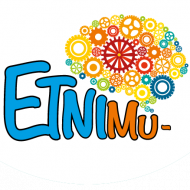The deterioration of brain health and memory disorders can affect us all regardless of our language, culture or nationality. In Finland social and health services are equal for all. Nonetheless, not everyone in need of services can access them or find the kind of services that would meet their needs.
Finland has a population of approximately 5.5 million. 200 000 people are living with mild cognitive impairment and 193 000 with progressive memory disorders (Viramo & Sulkava 2015, 35). According to Statistics Finland, there are approximately 310 000 foreign-language speakers in Finland (Tilastokeskus, 2017). Memory disorders are as recurrent among this population as they are among the ethnic Finns. With prevalence rates adjusted to those of the ethnic Finns, this means that there are 11 200 foreignlanguage speakers living with mild cognitive impairment and 10 900 foreign-language speakers with progressive memory disorders. These people form a patient group who is easily left out of services, for example, because of their insufficient Finnish language skills. Their brain health, nevertheless, should be taken care of as well. When the babyboomers reach elderhood and the total number of the elderly increases, this question will become more pertinent.

Whether an ethnic Finn or a minority ethnic person, memory disorders proceed the same. Their treatment is in many ways the same. We need to highlight the issues that we should take into consideration when we meet an ethnic minority elderly person with memory problems.
The most important issue is to remember that there is a human being behind her memory problems or memory disorder: this person has his/ her culture, personality and wishes that should be taken into consideration.
Such an approach, which respects the person’s background and needs, is what we call a cultural sensitivity as a way of work.
The Society for Memory Disorders Expertise in Finland’s ETNIMU-project was a development project that took place from 2015 until 2017with the support of Veikkaus Oy. It sought to increase information about brain health among ethnic minority elderly. The project created materials about brain health, memory and memory disorders in the native languages of the project’s participant groups: Finnish, Estonian, Russian, Somali and Roma People. The project also aimed to strengthen the cultural-sensitive skills of social and health care professionals and students.
Cultural Sensitivity in Memory Work: Experiences from Finland
This guide discusses the theories and action models behind ETNIMU-project, and reflects upon them in the light of ETNIMU’s aims, procedures and results. It seeks to support, among others, the work of social and health care professionals and anyone who may be working with ethnic minority elderly and the topic of memory. This guide represents the core observations of ETNIMU-project.
Cultural sensitive approach
In ETNIMU-project, cultural sensitivity as a way of work was built upon the notion of acknowledging each individual’s background and specific needs.
The approach consisted of three steps: 1) reach out to the ethnic minority elderly, 2) engage with the elderly, and 3) build a relationship based on trust.
In order for us to engage and to build trust with the ethnic minority elderly groups, we first had to find them and reach out to them. Cultural-sensitivity was, furthermore, supported by constant auto-reflection of our own work.
